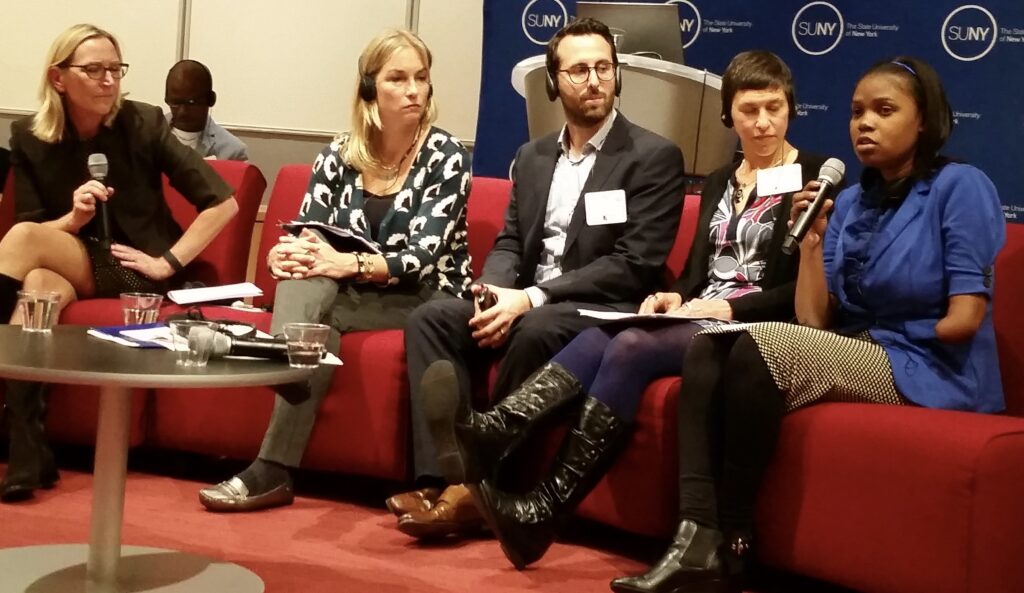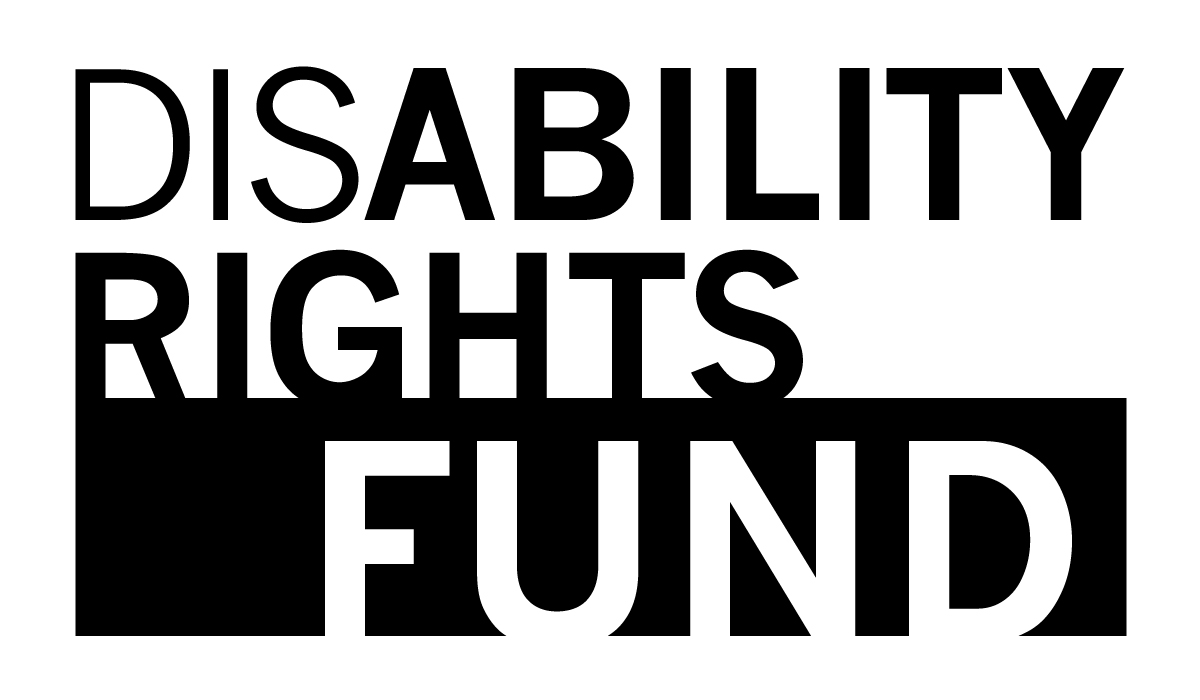
Achieving gender equality and ensuring equal access and treatment for women and girls is not only a basic human right, but it is vital to achieving sustainable and equitable development in Haiti and across the world. Haiti’s chronic political instability, widespread poverty, and limited educational opportunities all have contributed to a high rate of gender-based violence and systemic discrimination against Haitian women and girls.
– Haiti Development Institute
Esther Louis, Executive Director of L’Union des Femmes à Mobilité Réduite d’Haïti, a DRF grantee since 2015, participated in this year’s annual Haiti Funders Conference on November 9 and 10, thanks to the generous support of the Haiti Development Institute.
Esther spoke with passion about the rights and challenges women and girls with disabilities face in Haiti in the panel, “SDG 5: Achieve Gender Equality and Empower all Women and Girls.” She was on the panel (pictured above) with Ali Javid, Mona Foundation; Emily Nielson Jones, Imago Dei Fund; Eva Kolodner, Global Fund for Women; and Marielle Sander-Lindstrom, UN Population Fund.
She educated the panelists and the audience about women and girls with disabilities and said:
Women and girls with disabilities face multiple layers of discrimination often resulting in violence and abuse, with little access to justice. Women with disabilities are often left out of the women’s rights agenda. National policies on gender equity and gender-based violence do not consistently address the rights of women and girls with disabilities. Harmful stigma and myths about women and girls with disabilities that dehumanize them are pervasive in the country. They are often believed to be a curse from God, hyper sexual, and in some cases, people believe Deaf women turn into werewolves at night.
– Esther Louis
Destructive beliefs continue to disempower women and perpetuate acts of violence as was the case in April of the lynching of three Deaf women murdered for using Sign Language.
Esther Louis believes that in order for change to happen, “Empowerment must begin in the home. Many families keep their daughters with disabilities hidden from the community and do not allow them to attend school or look for work.”
Esther was fortunate to have her family’s supportive attitude, she was able to finish a law degree and go on to work for the Ministry of the Environment, meet and marry her husband and have a family of her own. These experiences are unfortunately not typical for many women with disabilities in Haiti.
Read more about DRF’s work in Haiti.
You can see a video of Esther Louis at the 9th session of the Conference of State Parties to the CRPD, United Nations
